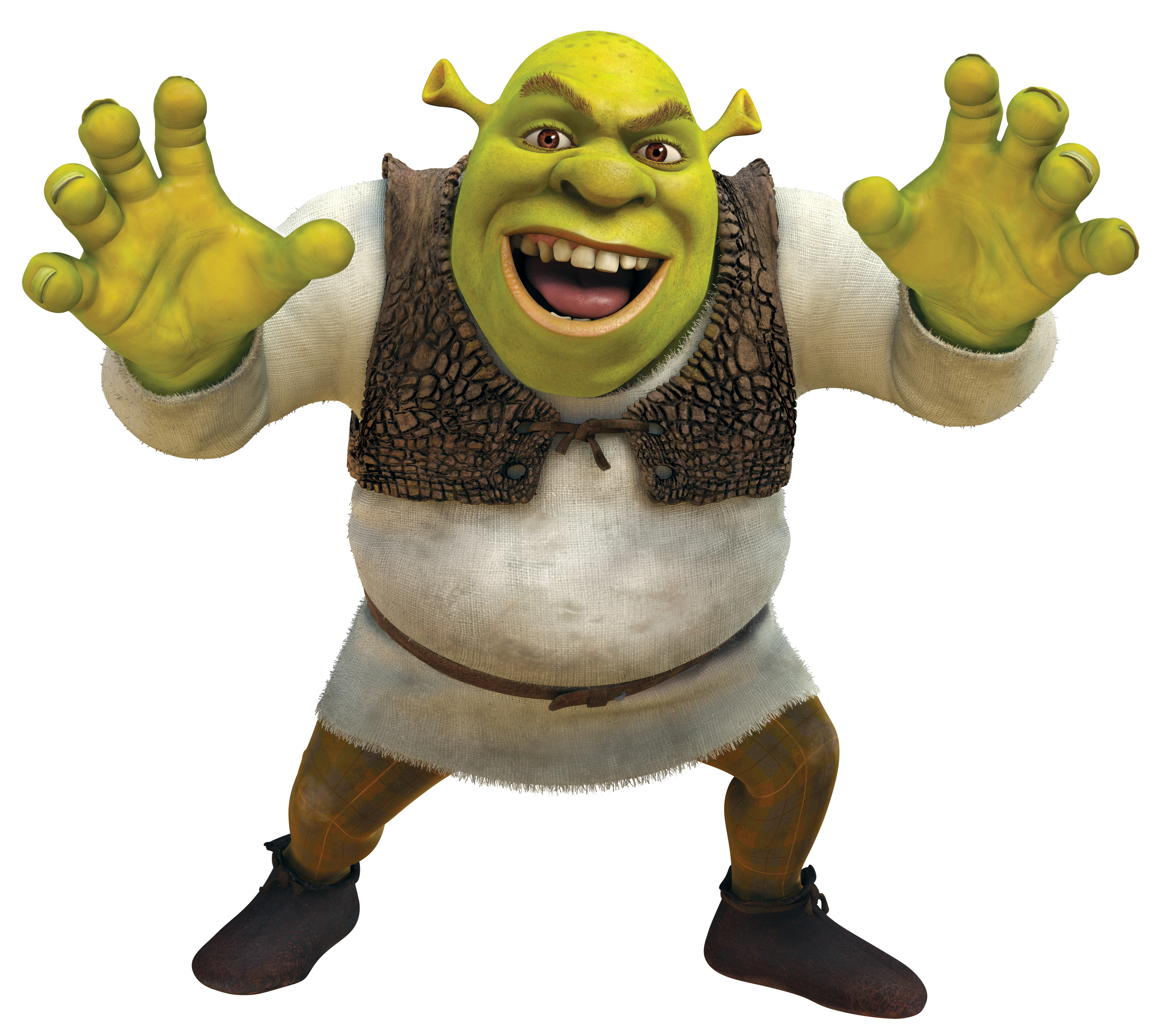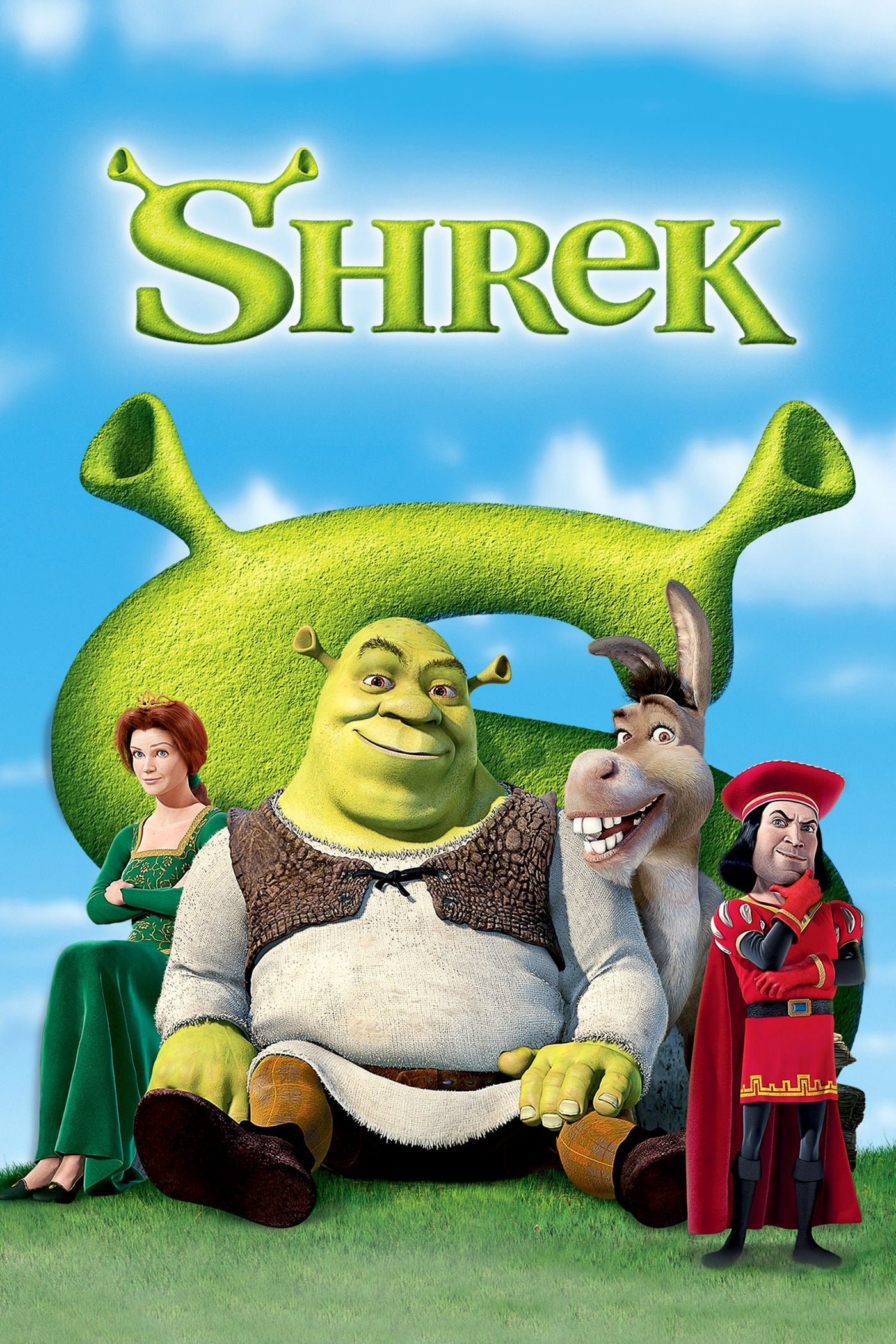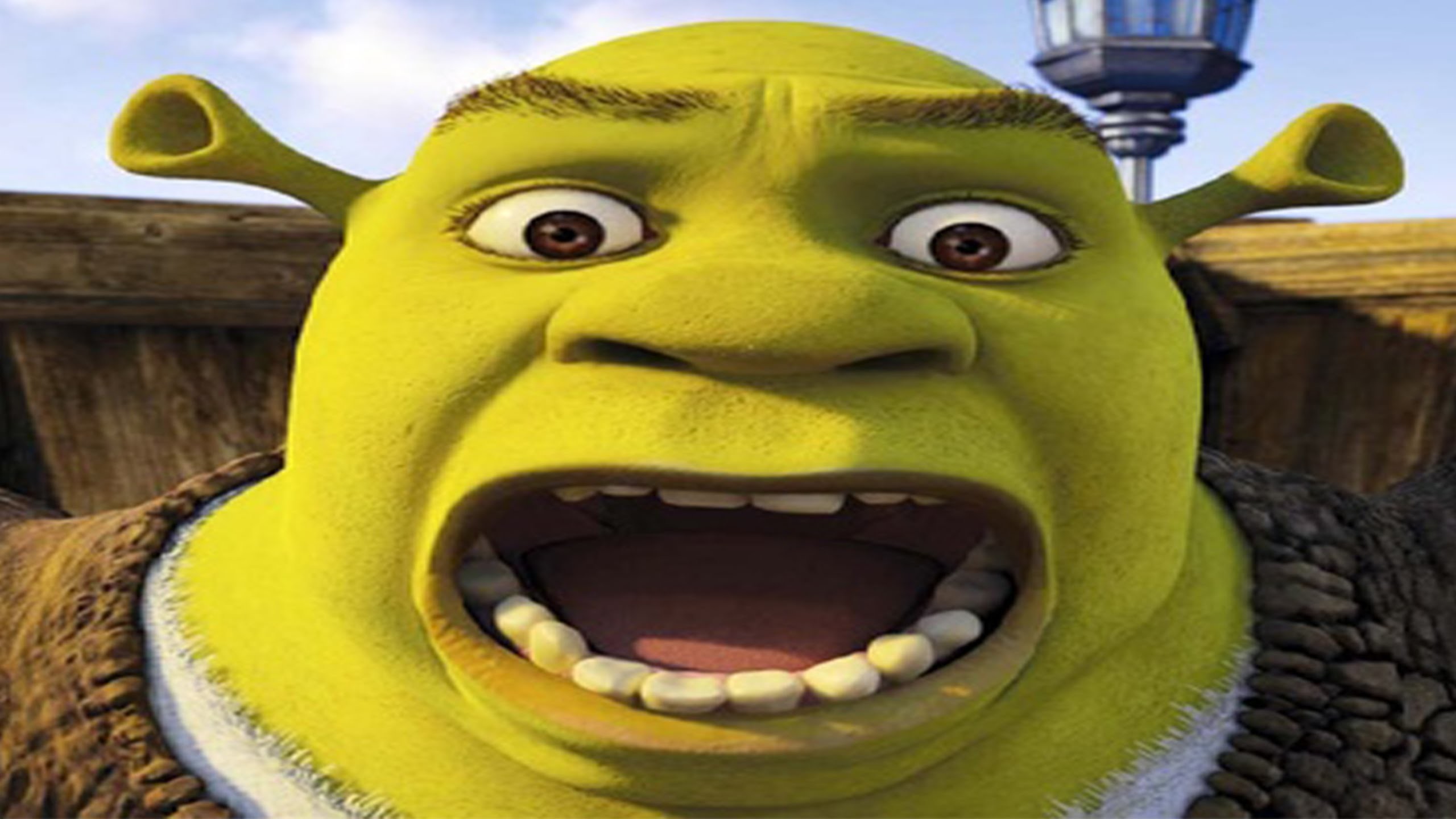The world of animated cinema was forever changed with the arrival of a grumpy, green ogre and his fast-talking donkey companion. Shrek, the animated comedy film, didn't just entertain; it redefined fairy tales, captivated audiences worldwide, and etched itself into the annals of pop culture history. Its unique blend of humor, heart, and subversive storytelling quickly made it a phenomenon. But for many fans, both new and old, a fundamental question often arises: when was Shrek released, and how did this cinematic journey begin? Understanding its debut is key to appreciating its enduring legacy.
This article delves deep into the origins of Shrek, exploring its initial release, the creative minds behind its success, and the profound impact it had on the animation industry and beyond. We'll trace its journey from a quirky picture book to a global sensation, examining the specific dates that marked its entry into the public consciousness and the milestones it achieved along the way. Join us as we uncover the precise moment this iconic film first roared onto the silver screen.
Table of Contents
- The Genesis of an Ogre: When Was Shrek Released?
- From Page to Screen: The Origin Story of Shrek
- The Voices Behind the Legend: Shrek's Iconic Cast
- A Critical and Commercial Juggernaut: Shrek's Impact
- Shrek's Enduring Legacy: The Franchise Beyond the First Film
- The Timeless Appeal of Shrek: Why It Still Resonates
- International Releases and Alternative Titles
The Genesis of an Ogre: When Was Shrek Released?
The question of when was Shrek released is central to understanding its place in cinematic history. While many remember its widespread theatrical run, the journey to the big screen involved a specific premiere date and a subsequent broader release. Shrek is the first installment in the Shrek film series, loosely based on the whimsical picture book by William Steig. This animated fantasy film, directed by Andrew Adamson and Vicky Jenson, marked a significant moment for DreamWorks Animation.
The Premier Event: April 22, 2001
Before its grand public debut, Shrek had its first official showing. The film premiered on April 22, 2001. This initial screening was a crucial moment, allowing critics and industry insiders to get a first look at what would soon become a cultural touchstone. Premieres often serve as a gauge for a film's reception, and Shrek's early showing set the stage for its immense success. It's a date that often gets overlooked in the broader narrative of its release, but it signifies the very first time audiences experienced the magic of Far Far Away.
Wider Release and Global Impact: May 18, 2001
While the premiere was in April, the date most commonly associated with when was Shrek released to the general public in the United States is May 18, 2001. On this day, the film opened in theaters nationwide, quickly drawing in families and animation enthusiasts alike. This was the moment Shrek truly began its ascent to global fame. The release was strategically timed for the lucrative summer movie season, allowing it to capture a wide audience and maximize its box office potential. The immediate positive reception signaled that DreamWorks had a major hit on its hands, one that would redefine the studio's trajectory and influence animated filmmaking for years to come.
From Page to Screen: The Origin Story of Shrek
The concept of Shrek didn't spring from thin air; it found its roots in literature. The film is loosely based on the picture book by William Steig, published in 1990. Steig's book introduced the world to a hideous, green ogre who finds happiness with a similarly unattractive princess. The book, while charming, had a much simpler narrative and tone than the eventual film. DreamWorks acquired the rights to the book in 1991, long before the studio itself was officially formed. The development process was extensive, with various iterations and creative teams involved over nearly a decade. This long gestation period allowed for the intricate world-building, character development, and comedic timing that would define the final product. The decision to adapt a less-known children's book, rather than a classic fairy tale, gave the creators immense freedom to innovate and subvert traditional tropes, a move that proved to be a stroke of genius and contributed significantly to why the film resonated so deeply when it was finally released.
- Partridge Family Cast
- Gypsy Rose Pregnant
- How Old Is Oprah Winfrey
- Ct The Challenge
- Treat Williams Death
The Voices Behind the Legend: Shrek's Iconic Cast
A significant part of Shrek's enduring appeal lies in its stellar voice cast, who brought the characters to life with unparalleled charisma and humor. The film boasts an ensemble of celebrated actors, each lending their unique talent to create memorable performances. Mike Myers, originally cast as the voice of Shrek, famously re-recorded his lines with a Scottish accent, a decision that became integral to the character's identity and charm. His portrayal of the grumpy but ultimately lovable ogre is iconic, perfectly capturing Shrek's cynical wit and underlying vulnerability.
Eddie Murphy's performance as Donkey is nothing short of legendary. His rapid-fire delivery, improvisational brilliance, and boundless energy made Donkey an instant fan favorite, providing much of the film's comedic relief and heart. Cameron Diaz, as Princess Fiona, brought a refreshing blend of strength, sarcasm, and vulnerability to the character, challenging the traditional damsel-in-distress archetype. Her performance was crucial in establishing Fiona as a complex and relatable heroine.
Rounding out the main cast, John Lithgow delivered a wonderfully villainous performance as Lord Farquaad, perfectly embodying the diminutive tyrant's pompous and insecure nature. Additionally, the film features a special cameo by Vincent Cassel, who voices Monsieur Hood, adding another layer of comedic brilliance. The synergy among these actors was palpable, elevating the script and creating character dynamics that felt genuinely authentic and hilarious. Their contributions are a testament to why the film continues to be celebrated years after when Shrek was released.
A Critical and Commercial Juggernaut: Shrek's Impact
Upon its release, Shrek was not just a popular film; it was a critical and commercial phenomenon that left an indelible mark on the animation industry. Its success demonstrated that computer-animated films could offer more than just technical spectacle; they could deliver sophisticated storytelling, sharp humor, and emotional depth that appealed to all ages.
Breaking Barriers: The First Academy Award
One of Shrek's most significant achievements came in 2002 when it made history by winning the first ever Academy Award for Best Animated Feature. This was a groundbreaking moment for the category, which had only been introduced that year. Shrek's victory solidified its place in cinematic history, proving that animated films could compete with live-action features on the highest artistic level. This award was not just a win for DreamWorks but a triumph for the entire animation industry, validating the artistic merit and cultural significance of the medium. It paved the way for future animated masterpieces to receive similar recognition and underscored the film's excellence in storytelling, animation, and voice acting, further cementing the importance of the year when Shrek was released.
Box Office Success and Cultural Phenomenon
Beyond critical acclaim, Shrek was a massive financial success. Released on May 18, 2001, it quickly dominated the box office, grossing over $484 million worldwide against a budget of $60 million. This commercial triumph proved the widespread appeal of its unique narrative and characters. More than just numbers, Shrek became a cultural phenomenon. Its quotable lines, memorable characters, and iconic soundtrack permeated popular culture. It spawned countless memes, parodies, and merchandise, demonstrating its deep resonance with audiences. The film's influence extended to how future animated movies were conceived, encouraging a trend towards more self-aware, humorous, and less conventional fairy tale adaptations. The success of Shrek truly redefined expectations for animated features, proving that they could be both critically acclaimed and immensely profitable.
Shrek's Enduring Legacy: The Franchise Beyond the First Film
The success of the original Shrek film, released in 2001, naturally led to the expansion of its universe into a full-fledged franchise. The Shrek film series has grown significantly, captivating audiences with its unique blend of humor and heart across multiple installments. Following the groundbreaking first film, the franchise continued with "Shrek 2" (2004), "Shrek the Third" (2007), and "Shrek Forever After" (2010). Each sequel explored new facets of the characters and their world, maintaining the original's irreverent spirit while introducing new challenges and adventures. The franchise also expanded with spin-off films, most notably "Puss in Boots" (2011) and its critically acclaimed sequel "Puss in Boots: The Last Wish" (2022), further enriching the Shrek universe and demonstrating its versatility.
The enduring popularity of the series has fueled anticipation for future installments. Fans are eagerly awaiting news about "Shrek 5," with whispers and reports suggesting a potential release in 2026. This continued development underscores the timeless appeal of the characters and the world created in the original film. The franchise's longevity is a testament to its strong foundation, built upon the success and impact of the very first film and the question of when was Shrek released remains a key marker in its rich history. The full list of Shrek films in order of release and chronology showcases a consistent journey of growth and evolution, promising more adventures from the beloved ogre and his friends in the years to come.
The Timeless Appeal of Shrek: Why It Still Resonates
More than two decades after when Shrek was released, the film continues to resonate deeply with audiences of all ages. Its enduring popularity can be attributed to several key factors that transcend the typical animated movie experience. Firstly, Shrek masterfully subverts traditional fairy tale tropes. Instead of a handsome prince, we have a grumpy ogre; the princess is not a helpless damsel but a formidable martial artist with a secret. This fresh, satirical take on familiar stories was revolutionary at the time and remains highly entertaining. It taught audiences to question conventional narratives and embrace individuality.
Secondly, the film's humor is multi-layered. It features slapstick comedy and visual gags for younger viewers, alongside witty dialogue, pop culture references, and adult-oriented jokes that appeal to older audiences. This dual appeal ensures that the film remains enjoyable through multiple viewings, revealing new layers of humor each time. The emotional depth is another crucial element. Despite the comedy, Shrek explores themes of acceptance, self-love, and finding beauty in imperfection. Shrek's journey to overcome his insecurities and Fiona's struggle with her true form provide powerful messages that are timeless and universally relatable. The film's iconic soundtrack, featuring popular songs integrated seamlessly into the narrative, also contributes significantly to its lasting charm. These elements combined have solidified Shrek's place not just as a beloved film, but as a cultural touchstone that continues to inspire and entertain new generations.
International Releases and Alternative Titles
While the May 18, 2001, release date is widely recognized for the United States, the global rollout of Shrek involved various dates and, in some cases, alternative titles or specific considerations for different countries and languages. Understanding these nuances provides a fuller picture of the film's worldwide impact and how audiences around the globe came to know the beloved ogre. The original title, "Shrek," remained consistent across most territories, a testament to the character's strong identity. However, marketing and distribution strategies often necessitated different release schedules.
For instance, while the film premiered in April and saw its wide US release in May, its arrival in other major markets like the United Kingdom, Japan, or Germany would have followed in the subsequent weeks or months of 2001, sometimes even stretching into early 2002 for certain regions. This staggered release allowed studios to tailor their marketing campaigns, manage dubbing and subtitling, and optimize for local holidays or competitive landscapes. IMDb, a reliable source for film data, often provides comprehensive details on these international release dates, offering insights into when and where Shrek, the animated comedy film, was released in different countries and languages. While the core "Shrek" title was universal, the film's reception and cultural integration varied, showcasing its adaptability and broad appeal across diverse audiences, further emphasizing the global significance of when Shrek was released.
Conclusion
The journey of Shrek from a quirky picture book to a global cinematic phenomenon is a testament to its innovative storytelling, memorable characters, and groundbreaking animation. We've explored the precise moments of its debut, from its premiere on April 22, 2001, to its widespread release on May 18, 2001, solidifying the answer to the question: when was Shrek released. This initial launch paved the way for its historic Academy Award win in 2002, its massive box office success, and the creation of a beloved franchise that continues to captivate audiences worldwide, with anticipation building for "Shrek 5" in 2026.
Shrek's legacy extends far beyond its release date; it redefined animated films, proved the power of subversive humor, and delivered timeless messages about acceptance and self-love. Its impact on popular culture is undeniable, ensuring its place as a cherished classic for generations to come. We hope this deep dive into Shrek's origins has been as enjoyable for you as the film itself. What are your favorite memories of watching Shrek for the first time? Share your thoughts and reflections in the comments below! If you enjoyed this article, be sure to explore our other features on iconic films and their enduring legacies.
- Rue Mcclanahan
- September 18 Zodiac
- Bill Belichick Linda Holliday
- Sophia Bush Chad Michael Murray
- Tallulah Willis


